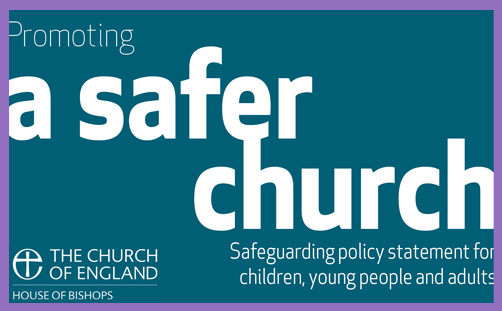
Coming out of a service on Advent Sunday, I commented to the preacher that the image he used to illustrate the theme of Advent was memorable. He was telling us how he and his family once waited by the river in an area where salmon were regularly seen on their way upriver. At any moment a fish might be seen in a flash of silver making a leap on its way back to the spawning grounds. This waiting, he told us, was an important part of the experience. It made the whole family attentive and alert to everything else that was going on during this time of expectancy. In other words, the enhanced awareness of the background sound of running water or the distant sound of traffic; these were all part of the waiting experience. There was thus a focus on the present moment not often to be found in their day-to-day awareness. And then the preacher went on to speak about Advent as a time of waiting.
As the sermon introduced a powerful and unforgettable anecdote to illustrate one aspect of the Advent message, I began to reflect on the variety and richness of the season in terms of the way it makes much use of visual symbols. For me the most powerful image of the season is the way that we are encouraged to reflect on the light/darkness theme. We have for example ‘casting off the works of darkness and putting on the armour of light’. This theme is a primal one. Everyone from the smallest child up knows the disconcerting experience of suddenly finding oneself in pitch darkness when the light fails. Most of the time we have ways of alleviating the experience of a power blackout. Having supplies of candles and torches if the mains power fails, our experience of absolute darkness is seldom prolonged. But even the shortest exposure to such darkness is unsettling. What is it about darkness that reaches to our primal fears?
In the first place, when we are in darkness, we feel vulnerable. The vulnerability is of different kinds. In the first place, the older among us fear stumbling over furniture or losing our balance. Balance interacts extensively with our ability to see. Not to see clearly is to feel unsafe. A second reason for vulnerability and actual fear is the primitive notion that someone may use the darkness to do us harm. Darkness potentially gives someone with hostile intent the opportunity to attack us in our state of vulnerability. Small children, especially, project on to the dark all the things that they are afraid of. We use the expression ‘creatures of the night’ as a generic term for all the unknown forces of darkness that we believed, especially as young children, were out to do us harm and jump out at us from dark corners.
The metaphor or symbol of darkness signifying all that is evil and frightening is, of course, balanced by the existence of light. Just as the absence of light places most of us in a state of apprehension and fear, so the restoring of light gives us back a sense of security and confidence. What are the features of light that change our perspective so completely? In the first place the existence and availability of light means that we know that the dark never has the last word. It is hardly surprising that ancient cultures believed that sun to have divine qualities as it reliably reappears each morning. The changing of the seasons and the restoration of the ‘unconquered sun’ after the winter solstice was something to be celebrated by humans over thousands of years.
Within the metaphor of light and darkness playing a huge part in our imaginative worlds, there are a variety of sub-themes. There is the state of twilight, when objects appear to us, but only as shadowy forms. Although we might be afraid of the unseen forces that we imagine can exist in the places of total darkness, the shadowy half-recognisable shapes of people may be equally terrifying. One reason to be afraid of shadowy shapes is that we are deprived of a clear picture of the other person’s face. Without a clear view of another person’s face, we have no means of reading their expression. Reading the face of another person is, of course, no infallible guide to whether the other person wishes us harm, but we do gain much information from being able to see and ‘read’ the expression in another person’s face. It is only the presence of light that makes such a scrutiny even possible. It is certainly difficult to say that we ‘love’ another person in a personal way unless we have had the chance to see their face and expressions. Each person’s face, when illuminated, is a mirror or a pathway into their soul.
Our reflection on the symbols of light and darkness has not so far said anything directly about the theme of Advent. But somehow discussing these symbols evoked by this theme, brings us close to the central concerns of the season. In my thinking on this imagery, I was first of all struck by some words from the Common Worship Advent blessing In that blessing, Christ is likened to the sun working its power to scatter darkness. The darkness presumably is a reference to the sin, the blindness and the perversity of the human race. All this needs to be removed for the light of Christ to be able to be received by humankind. Advent speaks of an arrival of this light as a past, present and a future event. The advent of Christ into the realm of human affairs can be thought of in one of these timeframes or all three. The Advent season has aspects of past, present and future in its teaching. The symbolism of light and darkness works equally well whichever one we choose to focus on. The Coming (Advent) of Christ inevitably involves some sort of confrontation with evil in the world or in individual human hearts.
The imagery of Advent is, in some ways, more powerful than the words we use to describe it. Having said that, one has to be prepared to immerse oneself in the rich symbolism that we have considered. The language of symbols is probably inexhaustible and certainly I can imagine that if two people, both with a well nurtured sense of imagination, were to sit down and think through as many ways of communicating the message of Advent using the language of symbols rather than that of words, they would likely have much to share. I invite my reader to ponder the nature of light and darkness and the way we all relate to them as a metaphor for our Christian beliefs as well as our journey through the joys and traumas of life. What I have in my mind is the thought of an encounter with light which simultaneously is purifying and transfiguring at the same moment. Advent is about a triple Coming. The Coming of the light in the birth of Christ is inseparably linked to his Coming today and the one that is to take place in the future. Our reception to this coming of light is a kind of surrender to something gloriously bright, something that gives us the hope that God is all in all. There is nothing inevitable about receiving that light. It is still within our power to cower in the gloom and prefer the dark. But the Advent and the Christmas season is a clear invitation to ‘cast off the works of darkness’ and seek to welcome with hope God’s light into our hearts and lives. Only we know how this process of removing and scattering darkness needs to take place in each of us at a personal and practical level.
A few words, also from Common Worship, caught my attention on Sunday. These were read as a introduction to the Confession but they sum up well this theme of Advent as I am understanding it here.
People of God: be glad!
Your God delights in you, giving you joy for sadness and turning the dark to light.
Be strong in hope therefore; for your God comes to save.
You are God’s children








